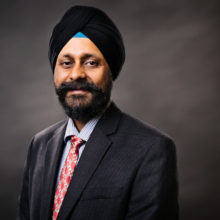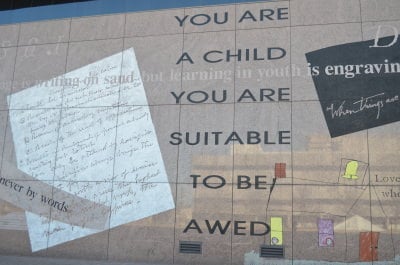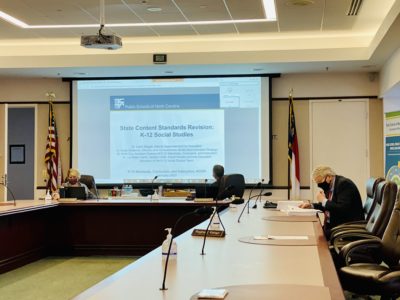

This week, the North Carolina State Board of Education will meet to vote on an updated set of social studies standards for our state’s public schools. These standards, which will determine what our children learn about American history and civics, amongst other subjects, are now almost in their fifth draft, with the process of revision and deliberation beginning more than one year ago.
Unfortunately, in recent months, they have also become contentious: Some seem to think that diversifying the peoples and subjects studied — including by acknowledging the challenges presented by racism and discrimination throughout our shared history — is wrong.
As a Sikh American who has lived in Charlotte for 20 years and has children currently enrolled in our public schools in the fifth, seventh, and 11th grades, I wanted to add my voice to this conversation, and hopefully put a name and a face to the true value of diversity in our public schools.
Sikhs have been a part of U.S. society for more than 125 years. Though we are often visually distinguishable by our articles of faith, including turbans and unshorn hair, our identity is still often misunderstood or unknown to many of our fellow Americans. This is partially due to the fact that, despite being the world’s fifth-largest organized religion, Sikhism is often left out of classroom curricula that is supposed to cover world history and belief systems. Over the past 10 or so years, the revision of social studies standards in different states across the country has presented a gradual but critical opportunity for Sikh Americans to advocate for our culture’s appropriate inclusion in lesson plans.
This doesn’t just make for a more holistic and accurate education for all children — it also makes our kids feel safer and seen in their own classrooms. The bullying of religious minority youth is a persistent difficulty, and unfortunately, Sikh children are no exception. A survey conducted by the Sikh Coalition in 2014 found that more than 50% of Sikh children had experienced school bullying, and that number jumped to 67% for those who wore articles of faith like turbans or patkas. Learning about one another’s backgrounds and understanding the value of diversity are the first steps to producing kids who don’t bully when they’re young or fall further prey to xenophobia and other prejudice as they grow older.
So to me, my family, and others like us, when we hear about measures to improve diversity and inclusion in educational materials, they aren’t just empty words or vague ideas. Instead, they’re the difference between a classroom where my children see themselves reflected, represented, and validated in the materials, or remain outsiders looking in. Everyone loves to learn about their own heritage and history, yet when my daughter studied world history in ninth grade, there were only a couple of sentences about Sikhism — and even those contained incorrect information, mischaracterizing our religion as part of another belief system entirely. Her disappointment was heartbreaking.
Updating standards won’t solve everything, of course. At the end of the day, it will be up to teachers to embrace new material in the subsequent content and examples, and make a good faith effort to include the new recommended topics in their lessons. And to be sure, we cannot count on schools alone to ensure that our young people grow up in a society that values multiculturalism. That responsibility falls to all of us, from parents to elected officials.
But education is a solid foundation on which to build toward this positive change, which is why I urge the State Board of Education to push forward in this effort to update the state’s social studies standards to be more inclusive and diverse. At the end of the day, we can do better. Being more inclusive, highlighting diversity, and reconciling with the struggles of our past while celebrating those who fought to overcome them — none of this is about the challenges of our political environment today.
Instead, it should be about what we’re planning for tomorrow: The tools we are giving our children to grow into better citizens, with both the educational background and emotional intelligence to treat one another with kindness and respect.




